Elementary kinetics
By: HWC
Date Uploaded: 02/18/2020
Tags: homeworkclinic.com Homework Clinic HWC Enzyme kinetics velocities chemical reactions enzyme catalysts Michaelis-Menten Kinetics
✔ https://HomeworkClinic.com ✔ https://Videos.HomeworkClinic.com ✔ Ask questions here: https://HomeworkClinic.com/Ask Follow us: ▶ Facebook: https://www.facebook.com/HomeworkClinic ▶ Review Us: https://trustpilot.com/review/homeworkclinic.com Kinetics is the study of the rates (velocities) of chemical reactions. The rates of biological reactions are greatly increased by enzyme catalysts. Enzymes are biological catalysts. They are specific to one type of reaction and to one or a small group of reactants called substrates. A catalyst speeds up the rate of a reaction without being changed itself. Most enzymes are globular proteins with the exception of a few RNA enzymes (ribozymes). They have an active site made up of a few amino acids. This is where the reaction occurs. The rest of the enzyme acts as a scaffold, bringing these key amino acids together. Two terms that are important within Michaelis-Menten Kinetics are: Vmax – the maximum rate of reaction when all enzyme active sites are saturated with substrate Km – the substrate concentration that gives half maximal velocity. Km is a measure of the affinity an enzyme has for its substrate, as a lower Km means that less of the substrate is required to reach half of Vmax.
Add To
You must login to add videos to your playlists.
Advertisement



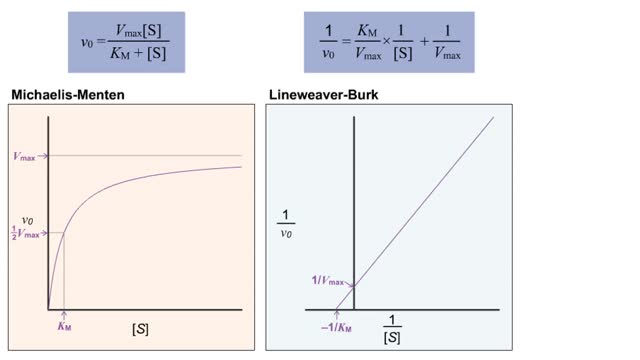
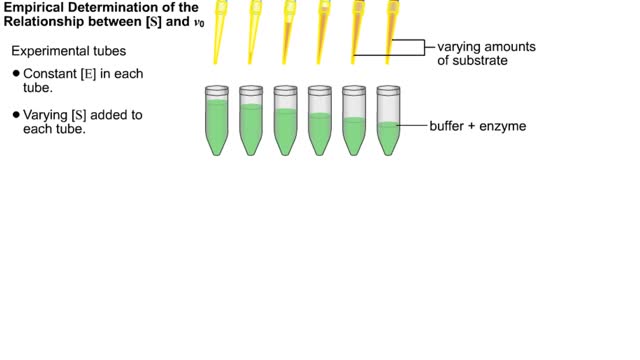
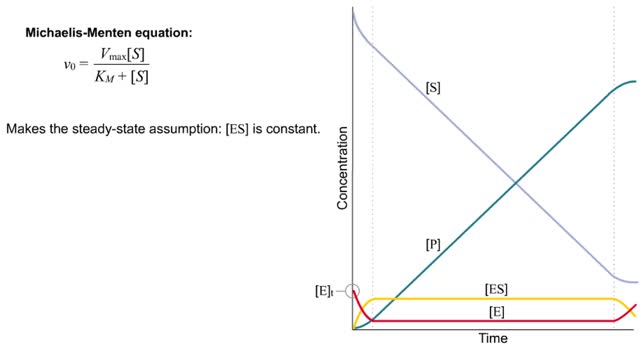
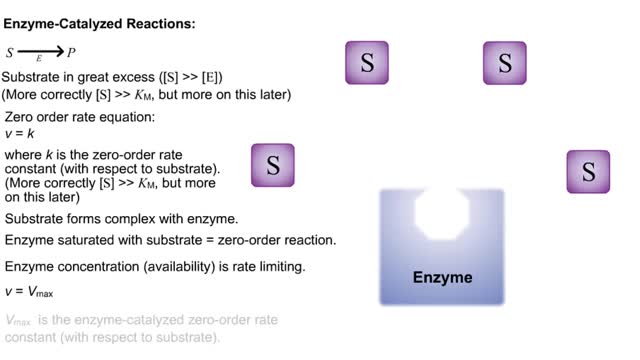
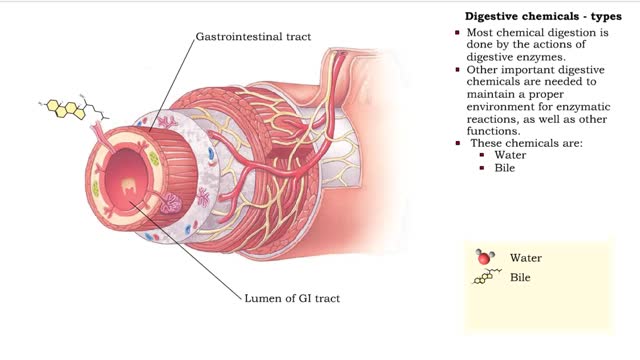
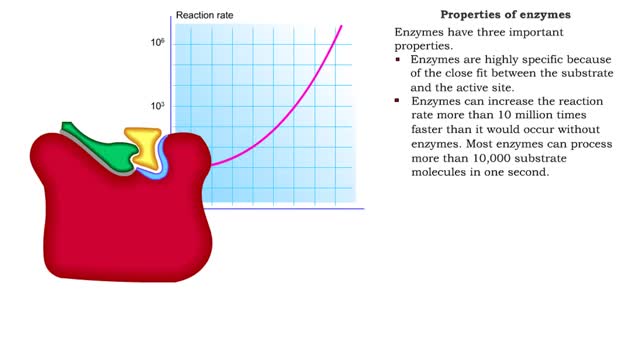
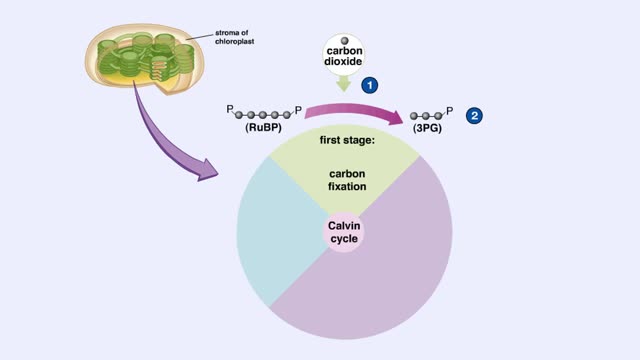
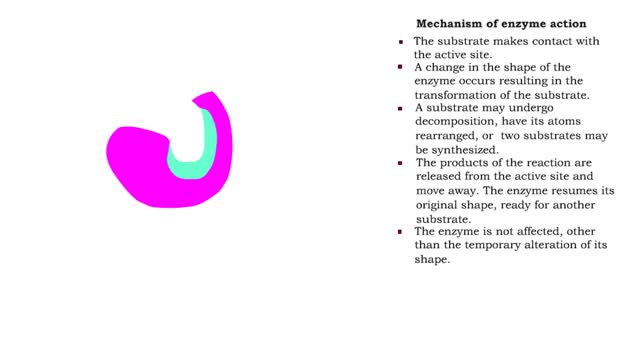
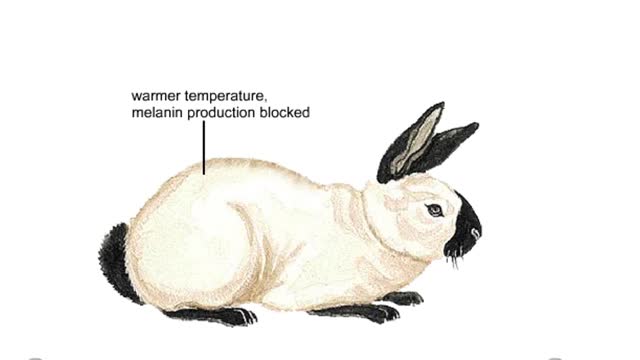
Comments
0 Comments total
Sign In to post comments.
No comments have been posted for this video yet.